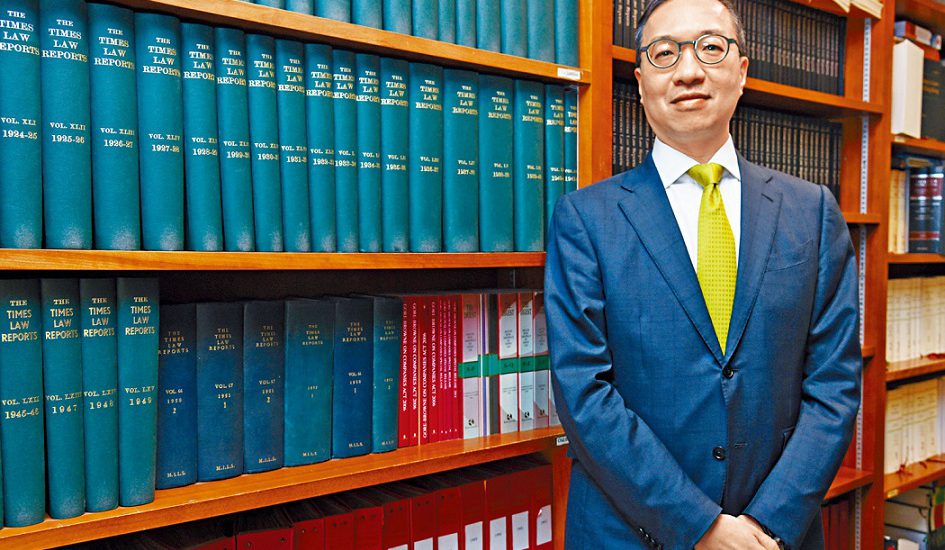Henry Ho: Residence permit symbolizes the new stage of “One Country, Two Systems”

林至穎:簡化稅務安排 助港人於大灣區發展

田飛龍:新香港的3個戰略支點

The State Council recently announced that the application procedure of a new residence permit for Hong Kong, Macau, and Taiwan residents will be officially implemented on September 1. This measure responds to Hong Kong people’s appeal over various inconveniences that have arisen in recent years rendered by the absence of a mainland identity card for them. In the second half of last year, OCTS Youth Forum published the first ever study concerning the situation of Hong Kong people studying and working in mainland and proposed ten recommendations. As the director of the study, I am rather pleased by the fact that three out of the ten recommendations have been adopted (they include the issuance of residence permit, cancellation of employment permit, and the inclusion of Hong Kong students in the “tripartite agreement” regarding employment of fresh graduates). The changes brought about by the introduction of the new residence permit are far greater than the document itself, and the level of impact on the people of Hong Kong will be much larger than the series of measures to increase the level of convenience.
Due to historical reasons, people from Hong Kong have been deemed as “compatriot [tóng bāo]” on the one hand, and “people from abroad” on the other. To be fair, these two labels have given Hong Kong people a lot of preferential treatment but also inconveniences. The change from preferential treatment to inconvenience reflects the rapid development of our country in the past few decades and the transformation of the way Hong Kong people live and work in mainland.
In the early days of the Chinese Economic Reform, Hong Kong businessmen, more precisely manufacturers, were the first to arrive in mainland during the 1980s and early 1990s. That was the golden era for them to enjoy numerous preferential policies as “foreign businessmen,” during which managers and those from the logistics and trade industries in Hong Kong (including container truck drivers) were also in their heyday. Though they encountered many “inconveniences” in the course of running their businesses, many of the problems could basically be “solved” through government officials. In the era when HKD was worthed more than RMB, the Home Return Permit was a “symbol of identity,” and fake identity cards were rampant in mainland, Hong Kong people’s demand for a mainland identity card was rather low.
In the 1990s, professionals began to enter the mainland, most of which were senior managers sent by foreign firms. These “pioneers” enjoyed a decent life through the service of their chauffeur and various subsidies. On the other hand, the identity of mainlander and mainland identity card could represent poverty and backwardness, since the difference between the salary of the Hong Kong managers and that of the mainland employees was 10 to 20 times or even greater.
From Enjoying Preferential Policies to Demanding Equal Treatment
Whether it is the need of “United Front” in the past, or as an example of an advanced economy and a civilized city, the identity, rights and obligations of Hong Kong and Macao compatriots are consciously distinguished from those of the mainlanders, and this turns out to be separation and barrier, underpinned by a sense of superiority brought about by the more advanced economic development. Nevertheless, over the past 10 years, especially in the last five, rapid development of our country and the sudden change of the way of how Hong Kong people live and work in mainland have led to the change from Hong Kong people enjoying “preferential policy” that they always take for granted to demanding “equal treatment” and “measures to increase to level of convenience.” This is rather unexpected.
The biggest change has actually been derived from the rapid popularization of e-commerce, governmental e-services, and commercial e-services in mainland. I will never forget that in 2014, as a minority in Hong Kong who took the lead in using WeChat, I was scolded by a taxi driver in Beijing for failing to use WeChat payment (it was the year when “DiDi” and “Kuaidi” literally handing out cash on WeChat to compete). At the same time, the mainland identity card was also given more and more functions that were rather unimaginable in the past: from registration at hospitals, to the replacement of physical high-speed train tickets, to the online application of civil service examinations. The 18 digits indicated on the Chinese identity card have made Hong Kong residents living in mainland envious and jealous. As China is about to enter a cashless era, Hong Kong people who do not have WeChat or fail to open a WeChat payment account will inevitably feel lost or even abandoned.
Such emerging sense of loss also reflects the transformation of the group of Hong Kong people who live in mainland. In the past, the main group of Hong Kong people to break new ground in mainland used to be businessmen and professionals—they were the “superior groups.” As for recent years and the future Greater Bay Area, those to be attracted to go to mainland are students, employees, entrepreneurs, residents, and even retirees. They have no chauffeur but are eagerly in need of ridesharing services; they include Hong Kong students who do not possess a mainland identity card and who have experienced the embarrassment of encountering various difficulties in daily life, hotel reservations, and job searching in front of their mainland peers.
From “People from Abroad” to Chinese Citizens
So, can a residence permit solve all problems? The answer is, of course, a No. Nevertheless, the introduction of the residence permit first reflects the change in mainland’s perception of the identity of “Hong Kong and Macao compatriots.” The changes from “compatriots” who are the targets of the United Front and “people from abroad” who are the subject of administration to “Chinese citizens” who have real rights and obligations are themselves a great improvement. In the past, the starting point of various policy considerations with regards to Hong Kong people, who were deemed as “people from abroad,” was “non-equal treatment”. As for preferential treatments (such as college admission) or inferior treatment, depending on the context of policy needs, there were often inconsistencies in the same policy area implemented in different places or in different policy areas in the same place. The most obvious example is the inconsistent policy of residential purchase for Hong Kong people as “people from abroad.”
Therefore, I hope that the significance brought about by the residence permit is to set “equal treatment” as the starting point when considering issues with regards to the treatment of Hong Kong people and to formulate a differentiated policy according to the actual circumstance, instead of maintaining the old way of thinking to manage Hong Kong people as “people from abroad” or even foreigners based on non-equal treatment and then to formulate measures of the so-called “national treatment.”
To Overcome Problems of Social Security, Education, and Housing from Hong Kong People in Mainland
An ID card indicates identity, but more than that it implies rights, obligations and responsibilities. It is also the key to connect identity and self-identity. The introduction of the residence permit reflects that the central government attaches great importance to the demand raised by residents of Hong Kong, Macao and Taiwan for a more convenient life. Further, it also epitomizes the central government’s intent to recognize and encourage Hong Kong, Macao and Taiwan residents to actively integrate into mainland. From the Mainland Travel Permit to the Mainland Residence Permit, and from “people from abroad” to “Chinese citizens”, it can be said that “One Country, Two Systems” has entered a new stage. What is to be overcome at this stage is neither a question of economic development nor a political issue such as universal suffrage, but how Hong Kong people living and working in mainland can solve social problems such as social insurance, education, housing, and cross-border welfare.
In the next 10 years, whether Hong Kong would be further integrated into the country’s development or return to the old path of establishment institutions, identity and values that are separated from each other, would depend on how to effectively deal with these social policy issues.
The author is the Convenor of One Country Two Systems Youth Forum.
This article is translated by Mr Lau Kit Lee, the original one was published in Ming Pao on 24 August, 2018.




